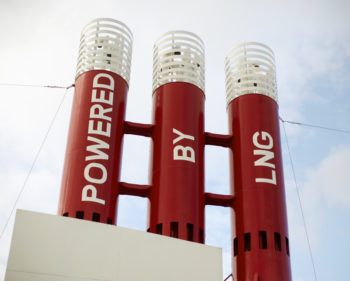A new mandatory code for ships using gases or other low-flashpoint fuels has entered into force on January 1, 2017, along with new training requirements for seafarers working on those ships, according to International Maritime Organization (IMO).
“The International Code of Safety for Ships using Gases or other Low-flashpoint Fuels (IGF Code) aims to minimize the risk to ships, their crews and the environment, given the nature of the fuels involved,” IMO said.
The organization added that the IGF Code addresses all areas that need special consideration for the use of low-flashpoint fuels, taking a goal-based approach, with goals and functional requirements specified for each section forming the basis for the design, construction and operation of ships using this type of fuel.
Amendments to the International Convention for the Safety of Life at Sea (SOLAS) require new ships using gases or other low-flashpoint fuels to comply with the requirements of the IGF code, which contains mandatory provisions for the arrangement, installation, control and monitoring of machinery, equipment and systems using low-flashpoint fuels, focusing initially on liquefied natural gas (LNG).
The amendments to SOLAS chapter II-1 include amendments to Part F Alternative design and arrangements, to provide a methodology for alternative design and arrangements for machinery, electrical installations and low-flashpoint fuel storage and distribution systems; and a new Part G Ships using low-flashpoint fuels, to add new regulations to require ships constructed after the entry into force on January 1, 2017 to comply with the requirements of the IGF Code.
Copyright Ships & Ports Ltd. Permission to use quotations from this article is granted subject to appropriate credit given to www.shipsandports.com.ng as the source.
